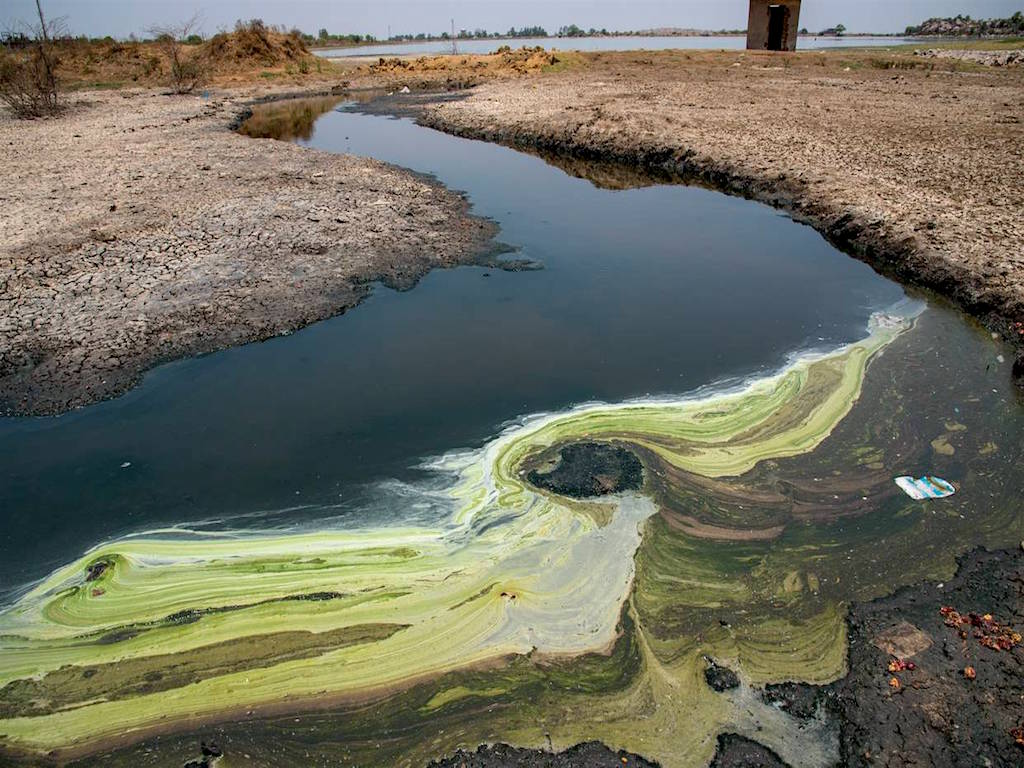3 Mins Read
The latest report by the World Bank warns about the “invisible threat” that the planet is facing – water pollution – which will affect the health, economy, education and agriculture of both rich and poor countries alike. The report also outlines how water pollution will pose an issue for nearly every Sustainable Development Goal (SDG) proposed by the United Nations and agreed by state governments all around the world.
Citing the largest-ever database on the world’s water quality, the landmark World Bank report showcases how poor water quality can dramatically impact human health, and economies and agriculture all around the world.
The database of satellite data was analysed by machine learning intelligence to find out the level of nitrogen, salt and oxygen – all markers of water health – in water basins around the world. It found that water quality was deteriorating worldwide. Much of the precious resource is deficient in oxygen, containing high levels of nitrogen and polluted with sewage waste. Some areas have been so heavily contaminated with plastics and pharmaceutical chemicals that they were literally catching fire.
The state of water pollution plaguing our planet means that we are far from achieving the United Nation SDG Goal #6 – to have clean water and sanitation for all by 2030. In 2015, the UN’s World Water Development Report found that 3 out of 10 people lack access to safe drinking water at home globally. In sub-Saharan Africa, the figures are more dire still: 75% of people lack of access to drinking water. Clean, safe water should be a basic human right.
The report underlines the importance of water quality, an oft-ignored threat, rather than just quantity.
“The world tends to focus on water quantity, such as floods and droughts, but this report focuses on the more invisible threats – the effects of pollutants impacting global water quantity,” said Richard Damania, one of the authors of the World Bank report.
Urgent action needs to be taken to tackle poor water quality, because water contamination can have a ripple effect on other global issues. For example, consuming water that is contaminated could lead to childhood stunting, infant mortality, lowered economic productivity and threaten food security by affecting agricultural yields.
Poor water quality can have knock on effects, which could hamper our chances of achieving the SDGs.
Top experts and economists working on the report concluded that by ignoring the threat posed by water pollution, our chances of achieving other the other 16 sustainable development goals, including to end environmental destruction, poverty and suffering by 2030, would face serious setback. Without water, most things are impossible.
“Clean water brings dignity. Entire communities are trapped in a vicious cycle of poverty, with a lack of basic water and sanitation impacting health, school attendance and livelihoods,” said Neil Jeffery, the CEO of water rights group Water Sanitation for the Urban Poor (WSUP), in an interview with Thomson Reuters Foundation.
One of the clearest cases of water pollution and its ripple effects can be found right here in Asia. Due to the boom in the textile industry, Indonesia’s Citarum river has become heavily polluted with mounds of garbage and hazardous chemicals. Despite government regulations requiring the proper treatment and discharge of wastewater, 280 tonnes of contaminated water is poured into the Citarum river every single day, according to local environmental group Elingan. Crucially, because Citarum feeds Indonesia’s largest reservoir, over 25 million people are dependent on the river for their daily water, electricity and agricultural activities, such as rice field irrigation, and therefore subsisting on dirty water.
This is a problem that world governments, businesses and citizens have to tackle together.
If we are to make progress on the SDGs and fight environmental degradation, it is important that policies are drawn up to standardise accurate monitoring of pollution levels and enforce corporate accountability. We, as individuals, must also consider our consumer decisions and their impact on our waterways, and make an effort to avoid products with contaminants, and of course, we must continue to pressure governments to make structural changes to tackle poor water quality.
Lead image courtesy of Wall Street Journal.




